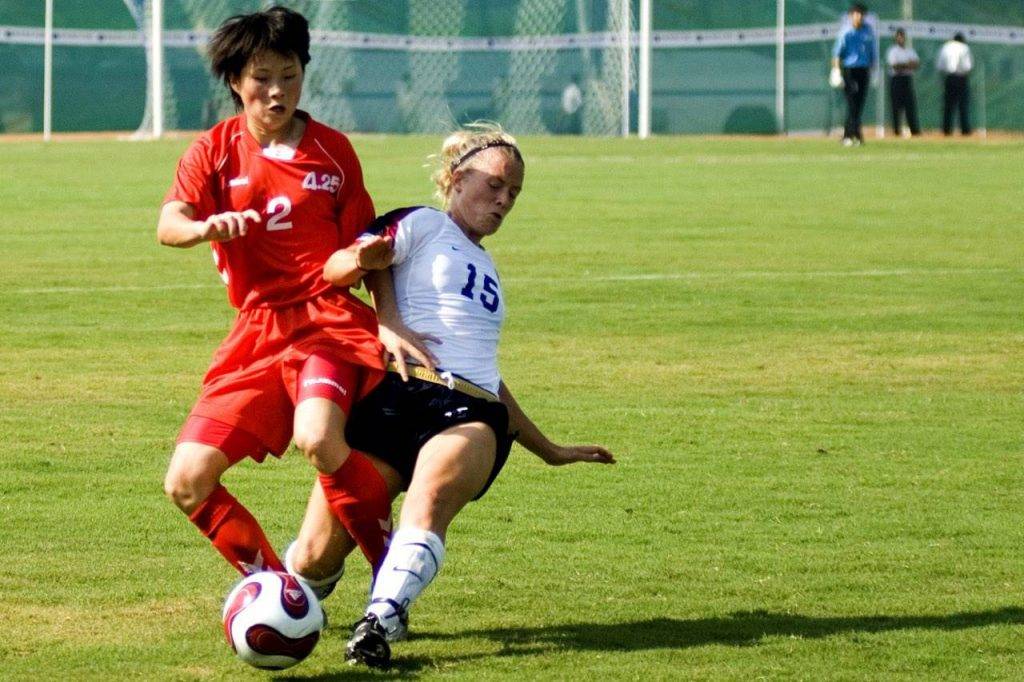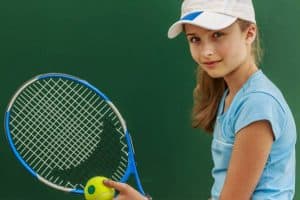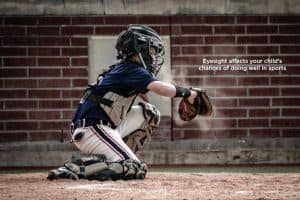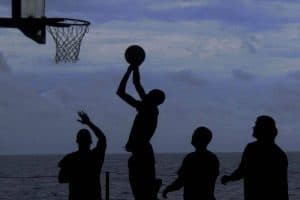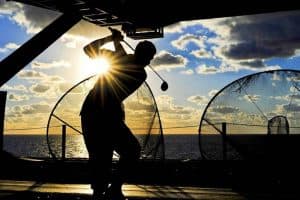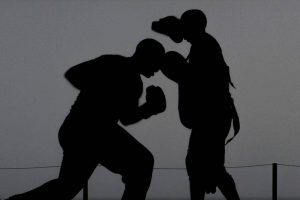Soccer skills are dependent on your physical stamina, legs and feet … and also your eyes.
Soccer is played in over 200 countries, making it the world’s most popular sport. The fastest goal in soccer history was scored in under three seconds after kickoff— this unbeatable record was undoubtedly set by a player with exceptional visual skills.
This article will explain why your soccer skills are actually dependent on your visual skills, and help you to understand the specific visual skills necessary for success in the game.
Visual Skills
Your visual skills play an essential role in your soccer performance. There are many different visual skills, some that help you see clearly while running down the field, some that help you keep your head in the game, and some that help you judge the speed and spin of an oncoming pass. The list doesn’t end here. The bottom line is, without well developed visual skills, even your ability to spot kick right into the goal will be affected.
Which visual skills are essential for optimal soccer performance?
- Dynamic visual acuity
- Eye tracking
- Eye focusing
- Concentration
- Depth perception
- Eye-foot coordination
- Peripheral vision
- Speed and span of recognition
1. Dynamic visual acuity
Dynamic visual acuity allows you to see moving objects clearly. Soccer is a sport that involves constant motion. For this reason, dynamic visual acuity is especially important for the game.
This visual skill allows you to clearly see the ball as it gets kicked around on the field, passed between players, and back healed by an opponent— even while you are in motion.
2. Eye tracking
Eye tracking is one of the most important visual skills needed for soccer. This visual skill allows you to keep your eyes on the ball at all times, as it travels between players, and changes location in a matter of seconds. The ability to move your eyes to track objects in motion, without moving your head, is a more effective way of seeing, and also helps you to maintain your balance.
Eye tracking is also necessary in order to follow the path of the ball, to ensure you’re in the correct position to receive a pass, and identify the location of your teammates and opponents— enabling a quick response to their actions.
3. Eye focusing
Eye focusing allows you to change focus quickly and accurately, between two distances, to keep track of the ball and the other players on the field. Eye focusing also helps you to switch focus from the coach’s instructions, to your fellow teammates playing offense, and to the goalie at the far end of the field.
Eye focusing allows you to see the stitches on the soccer ball, and to recognize a bend or bicycle kick— enabling a perfectly timed reaction.
To enhance your soccer game, contact an eye doctor near you, who can discuss how your visual skills can be improved.
SEE RELATED: Vision for Rock Climbing
4. Concentration
Visual concentration allows you to maintain focus on an object or play, with the presence of distracting factors in your visual field. This visual skill allows you to focus on the game, specifically when spectators are reacting or cheering around you.
Maintaining a high level of concentration throughout the game will allow you to play equally well in the beginning of the game and at the end of the game— and may be the most important visual skill if the game goes into extra time.
5. Depth Perception
Depth perception allows you to quickly and accurately judge the speed and distance of objects. This skill is essential for estimating the location of the ball, goal, teammates, opponents, sidelines, and other objects. Depth perception helps your brain to perceive the speed and spin of the ball, as well as where the ball is located, in order to land the assist and secure the goal.
Depth perception also enables accurate timing for jumping up to head the hall, receiving an assist, and judging the distance between you and your teammates or opponents to avoid collisions.
6. Eye-foot coordination
Eye-foot coordination allows you to react to incoming visual information with accurate body movements. This skill is essential for soccer because it enables accurate timing and control over body movements, such as going for that scissor kick at the precise moment, passing the ball to a teammate, heading the ball into the goal, or blocking the ball from reaching the goal.
Strong eye-foot coordination is essential for controlling the ball while dribbling, and placing that free kick in the top right corner of the net.
7. Peripheral vision
Your peripheral vision allows you to see everything around you, without turning your head. This visual skill helps you to be aware of the ball you are controlling with your foot, avoid your opponent coming toward you, and notice the open passing lanes your opponents may use.
Clear peripheral vision is vital to see your open teammate and land that game winning long pass.
7. Speed and span of recognition
Speed and span of recognition allows you to respond and react to a play as quickly as possible. The ball is kicked between players with a reaction speed that can make your head spin. This visual skill is essential for absorbing all the information in front of you with a quick scan of the field, to enable a quick response to the situation.
The faster your speed and the wider your span of recognition, the quicker you will be able to react, and the more likely you will succeed on the pitch.
Vision training for soccer
If you are a devoted soccer player, but are struggling to perform to your athletic potential, you may have a problem with your visual skills.
The good news is, with vision therapy, you can retrain the connections between your eyes and brain to strengthen your visual skills, and enhance your soccer performance.
LEARN MORE: Guide to Sports Vision
Schedule an appointment with an eye doctor for a thorough evaluation of your vision and visual skills.
Your doctor will determine which skills require strengthening, and can prescribe a program of vision therapy to help you gain confidence in your soccer skills.

